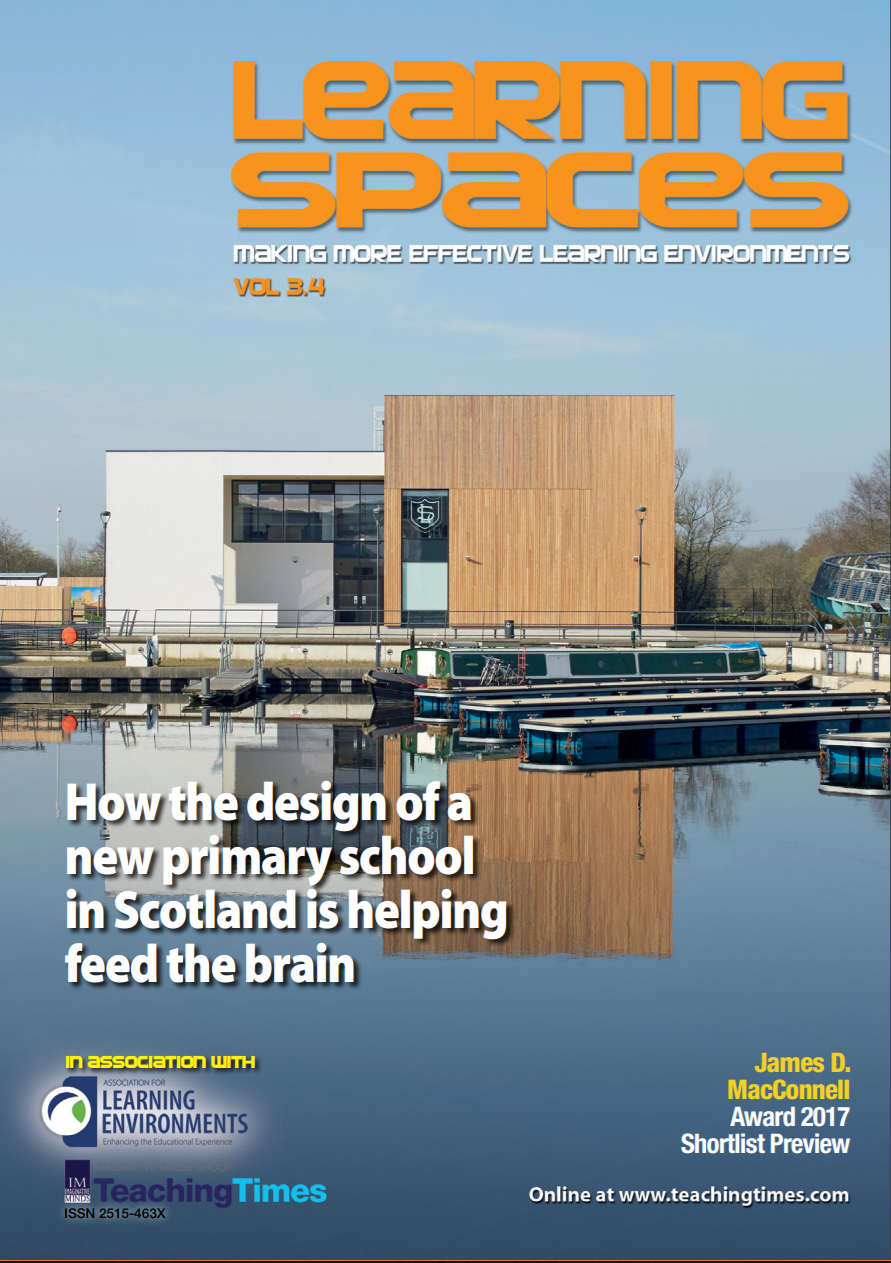Learning Spaces Magazine published EduChange President Catherine Saldutti in a Feature Article in Volume 3.4, released in October 2017 in print and digital editions. It was released at the International Annual Conference, LearningScapes 2017, of the Association for Learning Environments (A4LE) in Atlanta, GA. In her article, entitled The Design Process Doesn’t Work, Catherine calls for an updated and expanded process for modern learning space redesign. Traditionally, school facilities upgrades involved a few school administrators and design professionals who scoped the project and crafted a resulting RFP that went out to bid. But schools designing modern learning spaces have far more complex considerations, and the process should become more complex as well.
“The new wave of school construction has introduced at least two new variables to the process: 1) a new set of voices who influence project scoping at an early stage, and 2) an aspirational vision for modernized teaching and learning that educational leaders, teachers and students can barely envision,” Catherine writes.
Of course, the design process itself is not to blame. Catherine argues, however, that a failure to adjust the design process to accommodate all desired drivers, players and constraints is a recipe for (a very, very expensive) disaster. “A good reason to prolong and complicate the Needs identification stage is to ensure that the main drivers of school redesign privilege the learning needs of teachers and students,” Catherine suggests. “Building modern learning spaces will not automatically change teacher practice or student behaviors.”
The article summarizes more than a decade of experience working with schools engaged in modern learning space development projects, and includes several suggestions for moving toward total transformation of spaces, mindsets and behaviors. If your school is engaging pedagogical change management alongside school redesign, this is a must-read.

